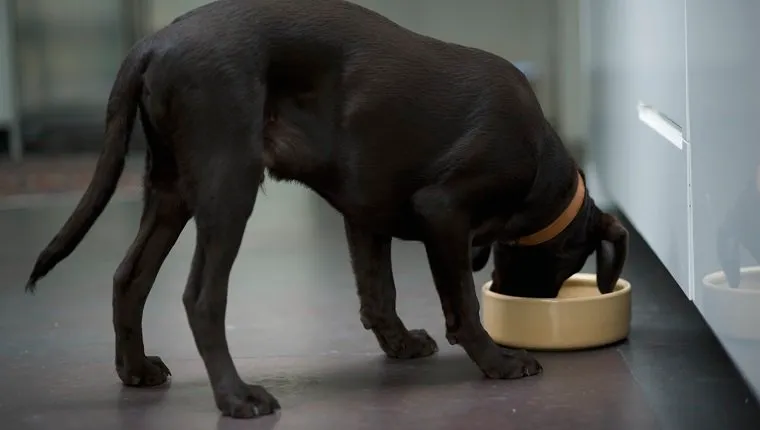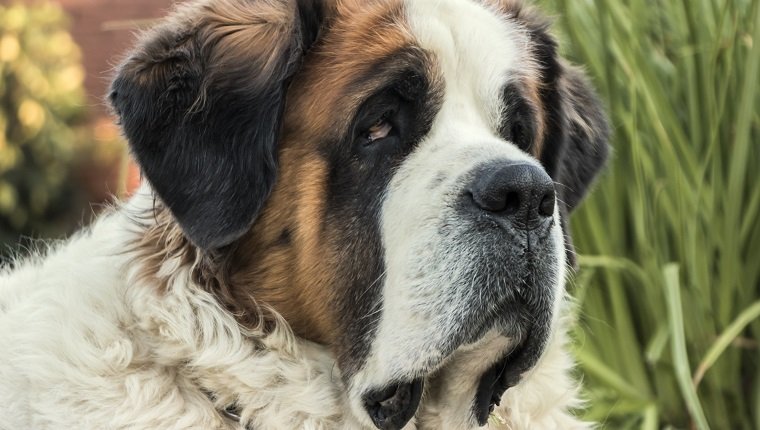Taurine deficiency in dogs happens when there is a lack of the amino acid taurine, which is important for dogs’ health, in the body.
Usually dogs’s bodies synthesize taurine on their own, which is why it’s not normally essential to add it to their food. Cats, on the other hand, do need to take in taurine from their food sources. However, some dogs may need taurine added to their diets if they have a deficiency related to medical conditions.
Taurine is especially concentrated in the heart muscles, eye retinas, and brain. It’s important for keeping those organs healthy, though its exact function isn’t well understood. A taurine deficiency can cause an enlarged heart, which leads to serious health problems.
If you see the signs of a taurine deficiency in your dog, then you must talk to your veterinarian. They will help you form a diet that will treat the condition.
Here’s what you should know about the symptoms, causes, and treatments for taurine deficiency in dogs.
Symptoms Of Taurine Deficiency In Dogs

The symptoms of taurine deficiency in dogs are not usually visible or specific.
It does sometimes lead to an enlarged heart, also known as cardiomyopathy, so you may see symptoms related to that condition. This is how a taurine deficiency is typically found in dogs.
Here are some of the symptoms you might see in dogs with a taurine deficiency that leads to heart problems:
- Panting without exercising
- Weakness
- Pain while urinating
- Blood in urine
- Pain in the abdomen
- Collapse or fainting
- Blindness
Causes Of Taurine Deficiency In Dogs

Genetics seem to be a primary cause of taurine deficiency in dogs as some breeds are more predisposed to developing the condition due to genetic defect. These breeds include American Cocker Spaniels, English Setters, Golden Retrivers, Labrador Retrievers, Newfoundlands, and Saint Bernards.
Dogs of these breeds may need a diet that contains taurine to avoid developing a deficiency. Lamb and rice, low protein, or high fiber diets are not good for these dogs.
Additionally, cystinuria, a genetic disease, can interfere with the absorption of amino acids. It also causes kidney and bladder stones. Because the condition is genetic, there isn’t much to be done to prevent it.
Treatment For Taurine Deficiency In Dogs

Treatment for taurine deficiency in dogs begins with a proper diagnosis. Your veterinarian will likely run heart tests if there are abnormalities, including an EKG and an X-ray. If the heart is functioning healthily, blood or urine samples may help determine where taurine is being lost and check for kidney damage.
The treatment for deficiency is usually just to increase taurine intake with supplementation. This can be done through dietary changes, and your veterinarian will instruct you on what foods to give your dog and what dosage of taurine is appropriate.
Lifelong taurine supplementation is usually necessary unless your veterinarian tells you otherwise.
Secondary conditions, such as cardiomyopathy or kidney stones, will likely be treated separately. Sometimes correcting the taurine deficiency is enough to reverse cardiomyopathy and prevent further damage to the eyes if they have been affected. Stones may need to be flushed with diuretics.
Your veterinarian will tell you how to continue treating the condition at home.
Has your dog suffered from a taurine deficiency? Did your vet prescribe any changes to their diet? Let us know in the comments below!









